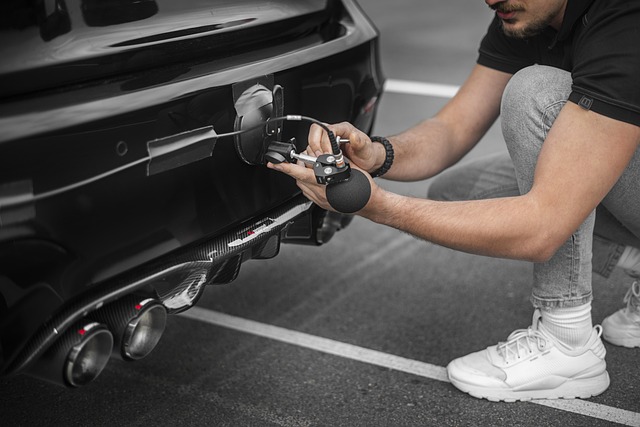When purchasing a used vehicle, it's essential to conduct a comprehensive vehicle title check and VIN verification to ensure the car's title is clean, there are no outstanding liens or salvage titles, and the vehicle has not been involved in significant accidents that could affect its value or safety. A car title verification through an auto title search service will reveal the title status and history, including past owners, accident records, and maintenance details, while a VIN verification confirms the authenticity of the vehicle's identification number. A complete vehicle history report integrates these checks to provide a full account of the car's background, ensuring that buyers are fully informed before transferring ownership through the state's Department of Motor Vehicles (DMV). These steps are critical for safeguarding against fraud and making an informed decision, guaranteeing a secure and transparent vehicle purchase.
When considering the purchase of a used vehicle, due diligence is key to safeguarding your investment. A thorough vehicle title check serves as a critical first step, revealing potential red flags such as salvage titles, odometer discrepancies, or unresolved liens that could compromise the car’s value and safety. This article guides you through the process of ensuring the vehicle’s title is clear and its history transparent, emphasizing the importance of an auto title search and VIN verification in the car ownership verification process. By conducting these checks, you can verify the title status and avoid falling victim to fraudulent schemes. Additionally, obtaining a comprehensive vehicle history report will provide a detailed account of the car’s background, ensuring peace of mind before finalizing the transaction. Learn how to navigate these critical steps in our detailed exploration.
- Navigating Car Title Verification: Essentials for a Clean History
- Unveiling Common Issues through Vehicle Title Checks
- The Title Transfer Process and Comprehensive VIN Verification
Navigating Car Title Verification: Essentials for a Clean History

When embarking on the journey to purchase a used vehicle, conducting a thorough car title verification is paramount. An auto title search serves as a critical step in ensuring that the title status check reflects a clean and unencumbered history. A vehicle title check will reveal if the car has a salvage title, which indicates that it has been significantly damaged and deemed a total loss by an insurance company. Such a designation can affect not only the car’s value but also its insurability and roadworthiness. Similarly, odometer tampering can be uncovered through this process, providing potential buyers with the assurance of accurate mileage readings.
In addition to a vehicle title check, obtaining a comprehensive vehicle history report is essential for discerning the car’s complete background. This report typically includes information on previous owners, accident history, service records, and any liens or impounds associated with the vehicle. It also provides a VIN (Vehicle Identification Number) verification, which ensures that the VIN has not been altered or cloned, safeguarding against fraudulent activities. The title transfer process is smoothed when all these checks are completed, as it confirms the rightful ownership and transfer of rights to the new owner. A car ownership verification supports this process by confirming that the individual selling the vehicle has legal ownership and the right to transfer it. By integrating these steps into your car purchasing protocol, you can significantly reduce the risks associated with fraudulent transactions and ensure that your vehicle’s title is clear and its history above board.
Unveiling Common Issues through Vehicle Title Checks

Before finalizing a vehicle purchase, an auto title search is a critical step that can uncover a range of common issues that may affect the car’s value and legality for road use. A comprehensive vehicle title check, including car ownership verification, can reveal if the title is salvage, indicating the vehicle has been significantly damaged and branded as such. Such information is crucial, as a salvage title can complicate insurance coverage and resale value. Moreover, a title status check can detect unresolved liens, which means previous owners still owe money on the car. This oversight could potentially result in the buyer being responsible for settling these debts before fully owning the vehicle. To further ensure the car’s history is transparent, a VIN verification is recommended. This process cross-references the vehicle identification number with its documented history, revealing past accidents, title changes, and other critical events that could impact the car’s integrity and safety. Additionally, obtaining a detailed vehicle history report is essential for a thorough background check of the vehicle. It provides comprehensive data on the car’s service history, previous owners, accident records, and more, allowing buyers to make an informed decision. The title transfer process, which includes all these checks, is not only a legal requirement but also a safeguard against potential fraud and scams, ensuring that the car in question has a clean title and history.
The Title Transfer Process and Comprehensive VIN Verification

When purchasing a vehicle, understanding the title transfer process and conducting a thorough VIN verification is paramount for ensuring clear ownership and vehicle history. The title transfer process begins with the seller providing the current title to the buyer upon agreement of sale. This document must be signed over to the new owner, indicating the transfer of ownership rights. It is then the buyer’s responsibility to promptly submit this title along with any required fees and documentation to the state’s department of motor vehicles (DMV) or equivalent authority for processing. This agency will perform a car title verification, ensuring that the title is clear of any liens, salvage titles, or other encumbrances that could impede ownership transfer.
In concurrence with the title transfer process, a comprehensive VIN verification is essential to verify car ownership and uncover any hidden issues. The Vehicle Identification Number (VIN) serves as a unique identifier for each vehicle and contains valuable information about its history, including past accidents, repair records, and odometer readings. An auto title search linked to the VIN provides a detailed vehicle history report, revealing any salvage titles, branding history, or unresolved liens that could affect the car’s value or safety. This step is crucial for buyers who wish to prevent fraud and ensure their investment is sound. A VIN verification through a reliable service can offer peace of mind by confirming the vehicle’s title status and comprehensive background, allowing potential owners to make an informed decision before finalizing the purchase.
When considering the purchase of a used vehicle, due diligence is paramount. A comprehensive car title verification and VIN verification serve as critical steps to safeguard your investment. Utilizing an auto title search and title status check can uncover potential issues like salvage titles or odometer discrepancies, while obtaining a thorough vehicle history report provides a complete overview of the car’s background. The title transfer process should be handled with care, ensuring that all legalities are in order. By adhering to these practices, you can confidently verify car ownership and ascertain the true condition of your prospective vehicle, thus avoiding costly surprises down the line. Remember, a little preparation goes a long way in the realm of pre-owned car purchases.



